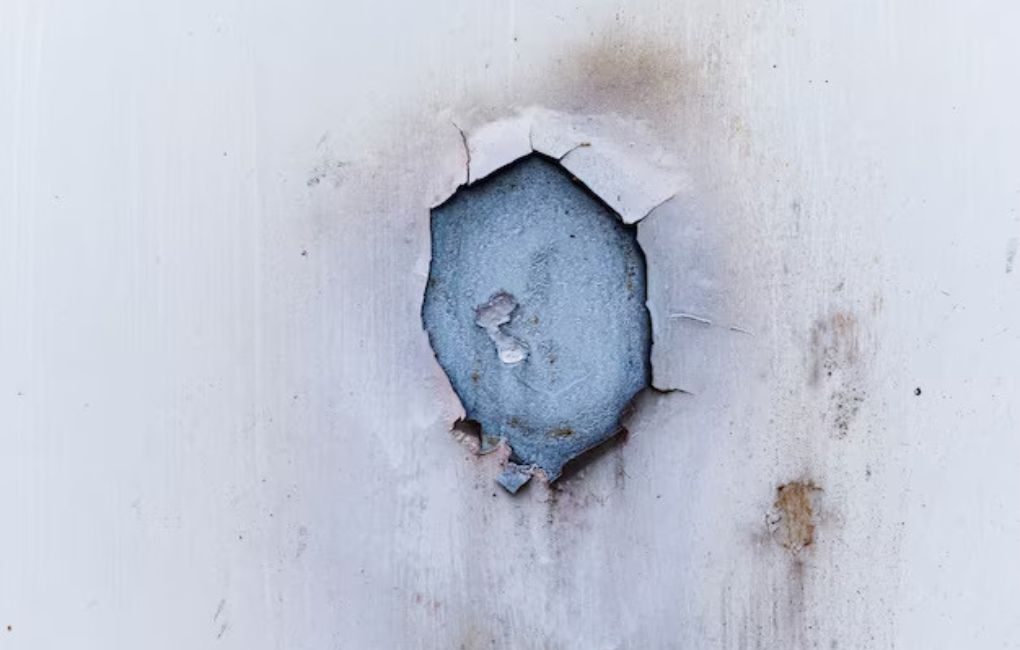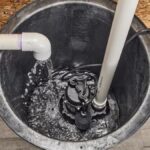Your home’s foundation is crucial, and slab leaks can seriously affect it, potentially leading to expensive repairs. Since these leaks are hidden in concrete, they often go unnoticed for a while. The big question is does homeowners insurance cover slab leaks? In general, homeowners insurance might help with the damage caused by a slab leak which depends on what triggered it. Insurance companies consider various factors to decide if they will cover the repair costs. It’s essential to understand that slab leaks covered by insurance depend on specific situations, so homeowners should be aware of when insurance may or may not help with slab leak repairs.
What is a Slab Leak?
Related: How to keep pipes from freezing without heat
Is a Slab Leak Dangerous?
Even though slab leaks aren’t necessarily harmful by themselves, if not dealt with quickly and skillfully, they can cause significant damage to your home. What might start as a small crack can become more extensive over time. There are two main concerns that require attention: the plumbing and the foundation of your home. Fixing the plumbing may involve serious tasks like rerouting pipes, or at the very least, repairing them. After dealing with the plumbing, it’s important to bring in a foundation company to assess and repair any damage to your home’s foundation. Taking these steps promptly can help prevent further issues and ensure the safety and stability of your home.
Read More: What To do if Pipes Freeze – How to Unfreeze pipes in Home
How to Detect Slab Leak?
- The carpet or flooring is feeling damp and showing signs of warping.
- Unexpected increases in your monthly water bills.
- Continuous running of your water heater.
- Growth of mold or mildew.
- Water collecting in unexpected areas around your home.
- Reduction in water pressure.
- Warm spots on the floor. If you notice a consistently warm area on your floor, it’s crucial to investigate whether it could be caused by a pipe leak.
Related: How to detect a water leak under a slab?
What Steps to Take if You Think There’s a Slab Leak?
If you think your home might have a slab leak, it’s important to get a professional to check slab leak and find out where it’s coming from. A slab leak can be a big problem, and it’s a good idea to understand the warning signs and what your homeowner’s insurance covers. Your insurance company can help explain your policy and what risks it protects against. To prevent issues, it’s a good practice to have a foundation contractor inspect your home’s foundation every 3-4 years. They might notice problems or signs that you haven’t seen, which helps you avoid potential damage to your home.
Is a Slab Leak Covered by Insurance?
The good news is that you don’t have to use your own money to cover the costs when it comes to slab leaks – homeowners insurance takes care of it. Slab leaks are typically covered by homeowners insurance, just like damage from lightning, wind, fire, or theft. Two types of insurance help with slab leaks: dwelling coverage, which is for the physical structure of your home, including leaks in the foundation and walls;
And personal property coverage, which protects your belongings. If, for example, your furniture is damaged by a leak, the insurance company will give you money to fix or replace it, but there are limits to how much they will pay.
Keep in mind that certain valuable items, like jewelry or electronics, might not be fully covered, and what your policy covers specifically depends on your insurance company and the details of your policy.
Does Homeowners Insurance Cover Slab Leak Repair? When Does My Insurance Company Provide Coverage?
Whether you’re covered for a slab leak depends on the type of home you have and the insurance coverage you’ve chosen. Basic forms like HO-1 or DP-1 are quite basic and protect against specific events like fires and hurricanes but usually don’t cover slab leaks or other water damage.
On the other hand, an HO-3 Special Form policy is more comprehensive and generally covers water damage and most other incidents, unless they are specifically excluded in the policy. So, it’s crucial to understand the type of coverage you have to know if you’re protected against slab leaks and water-related issues.
Under What Circumstances Won’t I Receive Slab Leak Insurance Coverage?
It’s crucial to know that homeowners insurance covers the damage caused by a slab leak, not the actual plumbing pipe or appliance. Unfortunately, most policies won’t help with regular maintenance issues or things that wear out over time. To prevent the potential disaster of a slab leak in your home, make sure to regularly check your foundations. If you notice any warning signs, it’s important to get them checked right away. Take a look at your home insurance policy to confirm if it covers slab leaks, and consider upgrading your policy if needed. It’s also a good idea to stay on top of regular maintenance tasks to avoid wear and tear issues that might lead to leaks.
FAQs About Slab Leak Insurance
What happens if you have a slab leak?
If you have a slab leak, it can lead to damage in your home’s foundation and walls. Signs include higher water bills, musty odors, and low water pressure. Homeowners insurance may cover the damage caused by a slab leak, but not the pipe repair itself. It’s important to address slab leaks promptly to prevent further damage and to check if your insurance policy covers such incidents.
What is the solution for slab leak?
The solution for a slab leak involves hiring a professional to locate and repair the leak. Depending on the severity, plumbing pipes may need rerouting or repair. It’s crucial to address slab leaks quickly to prevent further damage to the home’s foundation and walls.
How do plumbers detect slab leaks?
Plumbers use specialized tools like electronic leak detectors and listening devices to find slab leaks. They may also perform pressure tests or use cameras to inspect pipes. Once detected, plumbers can determine the location and extent of the leak, which allows them to plan and execute the necessary repairs.
How long does it take to repair a slab leak?
The time to repair a slab leak varies based on factors like the leak’s size and location. Small leaks may take a day, while larger ones might require a few days for repairs. Plumbers will assess the situation and provide a more accurate timeframe for the repair process.
How common are leaks under slab?
Leaks under slabs are relatively common, especially in homes with aging plumbing systems. Factors like soil conditions, water quality, and the materials used in pipes can contribute to the likelihood of slab leaks. Regular inspections and immediate attention to warning signs can help address these issues before they escalate.
Conclusion
To know if insurance covers slab leaks, look at your policy details. Basic ones might not, but advanced ones often cover water damage unless they say otherwise. Checking your home’s foundations regularly and fixing issues quickly helps prevent problems. If you are unsure, check and maybe upgrade your insurance to stay safe from slab leak damage. It’s crucial to stay informed and take care of your home to avoid unexpected troubles.






